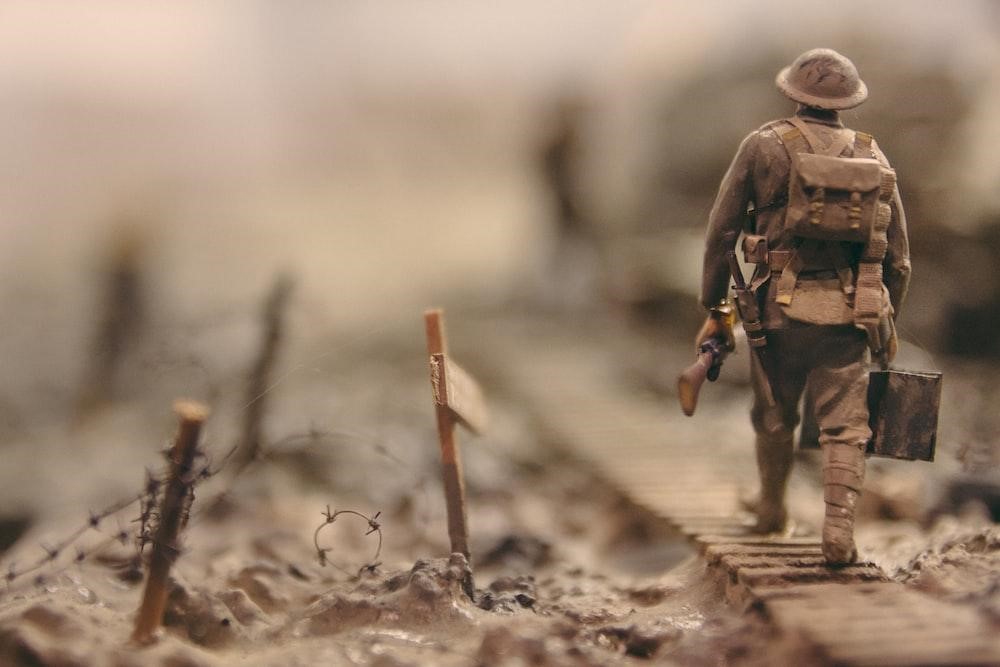War is one of the most challenging situations and things for nations and people to go through. History has shown us that warriors used music to deal with the stress, trauma, and other problems that came with battle. Contrary to popular belief, music was not first utilized during the First or Second World Wars. The fact is that music has been a part of warfare for thousands of years. The meaning of music during the wars has not changed, even though the instruments and tools may have.
The Role of Music During Ancient Conflict
Although technology did play a significant part in how music was developed, its application dates back to biblical periods. The use of music by soldiers in crucial battles is described in numerous books of the bible. Additionally, it was said that the Greeks were led by flutists who entertained the troops with songs.
The first president of the United States, George Washington, utilized music to control his army. Later, as the first World War broke out, music assumed a significantly greater importance. Since they served to remind citizens and soldiers of the causes for which they were fighting, patriotic songs were an essential part of the conflict.
The Role of Music in WWII and Vietnam War
Compared to other battles, World War II saw a significant change in how music was used. This time, rather than only being used for entertainment, it served as a propaganda tool. Even so, the radio’s constant blaring of music at military camps, workplaces, and medical facilities helped warriors feel better every day. Concerts were also employed to raise spirits in the military and among civilians.
Music had a significant transformation as times changed. The Vietnam War revolutionized all of that, as opposed to how classical, jazz, and other types of music were used in earlier wars. Protest music and rock & roll were now appropriate. The majority of artists at the time were largely against the Vietnam War. They made their thoughts heard through songs. In addition, music was also used to send messages of encouragement and resistance to soldiers fighting the war.
Songs like Bruce Springsteen’s “Born in the USA” were expressly created to address the plight of troops who lost their lives in battle. It also criticized the difficulties servicemen experienced after the war. Other tunes were Aretha Franklin’s “Chain of Fools” and Jimmy Hendrix’s “Purple Haze.” These were only a small sample of the numerous songs that the conflict inspired writers to create.
The Role of Music in Modern-Day Wars
Technology has changed how music is employed today, in contrast to prior wars. Soldiers today have access to smart-phones, computers, and a variety of other technology. They can now listen to music in a much wider capacity because of this. Due to these alternatives, people are now using music as a coping mechanism for the stress of conflict. The majority of us use music to lift our spirits when we’re feeling down, hurt, pleased, or in need of some consolation. Additionally, it serves as a psychological device to prevent soldiers from becoming upset.
Wrapping Up
Post-traumatic stress disorder, which leaves some soldiers never quite the same, is one of the issues that many soldiers today deal with. Soldiers who utilize music to communicate with the outside world and their families typically fare much better than those who do not. Whatever the genre, music has had a significant impact on how wars have been fought– both by the soldiers as well as the nations involved.

Eric Dalius is The Executive Chairman of MuzicSwipe, a music and content discovery platform designed to maximize artist discovery and optimize fan relationships. In addition, he hosts the weekly podcast “FULLSPEED,” where he interviews innovative entrepreneurs across multiple industries. Eric also established the “Eric Dalius Foundation” to provide four scholarships for US-based students. Connect with him on Twitter, Facebook, LinkedIn, Instagram, and Entrepreneur.com.
